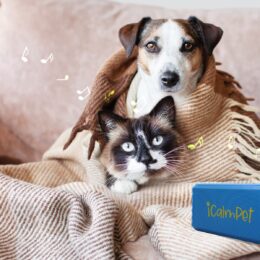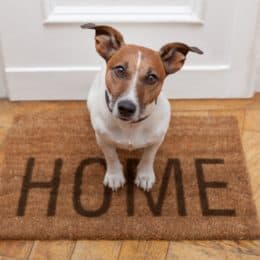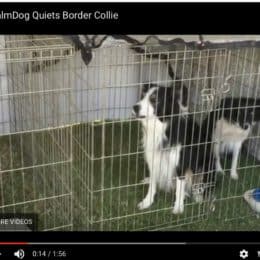Your cart is empty
As I approach the big 50, I notice that I don’t have the same tolerance for loud environments that I did 20 or even 10 years ago. You rarely find me in Costo, clubs, or even loud restaurants anymore. Partly due to the crowds, but mostly due to the loud sound environment. I go into sensory overload and shut down quickly, meaning I can’t focus, feel stressed, my body tenses, and I’m quickly looking for the exit sign to a quieter environment where I can breathe peacefully. Similarly, if I’ve had a very stressful day, I want to come home and either have complete silence (except for the sounds of the wildlife in my remote home setting), or turn on music with simple sounds, such as the music from Through a Dog’s Ear.
Currently, I have two dogs, both Labrador Retrievers. Sanchez is nearly eight years old and Gina is approaching 2 years. When I observe them, I notice that Sanchez doesn’t have the same tolerance for noise that he used to when he was younger. Growing up as a puppy in training for Guide Dogs for the Blind, he was socialized a great deal in public places and exposed to a wider variety of sound environments than most pet dogs. During my year as his volunteer puppy raiser, I brought him to six San Francisco Opera performances, and seven San Francisco Symphony concerts. He snoozed through most of it, except for a few startling sounds coming from the opera stage. When he was five years old, he acted the part of Helen Keller’s dog in the play “The Miracle Worker.” Although most people were impressed with his well-mannered talents on stage, what I found more remarkable was his calm, focused, confident demeanor back stage during the food fights and throwing of dishes on stage. Due to his breeding and early training, this just didn’t phase him. A few years later, I’m not sure I would say the same.
At 22 months, Gina is a bundle of happy energy and I’ve never seen her go into sensory overload, although there are many dogs her age that could and certainly do. I still reward her when she stays calm and focused on me during loud man made sounds, i.e. ambulance sirens, motorcycles, etc.; I can expose her to more stimulating sound environments without worrying about stressing her nervous system.
In writing this blog, I reflected on first conceiving the idea for creating music to help improve the quality of dogs lives (and their humans). It was during the final weeks of Byron’s life. A Golden Retriever who took his last breath a few months before his 14th birthday in 2003, he was my soul dog. Byron brought me into the dog world and I would have done anything for more time with him. Although Through a Dog’s Ear wasn’t yet created, it really was his passing that opened up the space for its birth.
Two years of clinical testing took place before we released our first CD, Music to Calm your Canine Companion Vol. 1. We’ve added an additional four CD’s to our music series since then, and dog lovers world-wide have played Through a Dog’s Ear music for their senior dogs. It has helped calmed dogs pre- and post-surgery, as well as aided in their healing process during recovery from an illness. Even dogs that have lost some of their hearing later in life, lie down and breathe easier when the music is playing.
Through a Dog’s Ear music is psychoacoustically designed to support you and your dog’s compromised immune or nervous system function. When the immune or nervous system is heavily taxed, as it so often is in senior dogs, a natural reaction is to self-limit the amount of auditory or visual stimulation coming into the system. That is why senior dogs will often shut down in over stimulating sound environments. The “nutrients” of sound are needed the most when life energy is at a low ebb or when neuro-developmental (including sensory) issues are present. To facilitate maximum sound intake while conserving energy output, we have created the method of “simple sound”.
Have you noticed a change in how your dogs react to sound as they mature? Thanks for clicking comment below and sharing your story.
I am offering my blog readers a free download from our latest release, Music to Calm your Canine Companion, Vol. 3. Simply click here and enter your email address and a link to the free download will be delivered to your inbox for you and your canine household to enjoy. Click here to listen to sound samples.
Lisa Spector is a concert pianist, Juilliard graduate, canine music expert, and Facebook coach. By combining her passion for music with her love of dogs, she co-created Through a Dog’s Ear, the first music clinically demonstrated to relieve anxiety issues in dogs. She shares her home and her heart with her two adorable “career change” Labrador Retrievers from Guide Dogs for the Blind, Sanchez and Gina. Follow Lisa’s blog here.






